Iran Deaths Since March 2020 Suggest Pandemic Killed 300,000
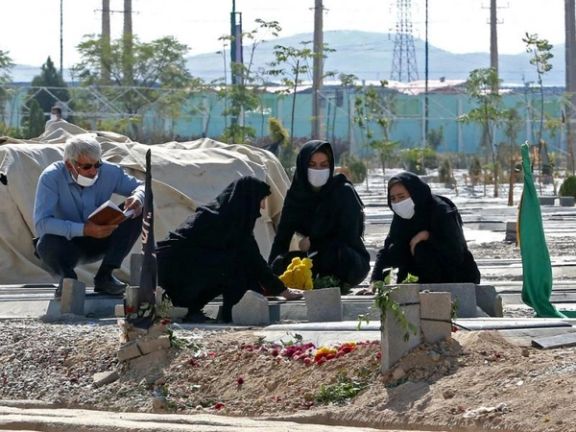
The number of deaths in Iran since Covid-19 began has been 300,000 higher than previous years, suggesting pandemic deaths may be more than officially reported.

The number of deaths in Iran since Covid-19 began has been 300,000 higher than previous years, suggesting pandemic deaths may be more than officially reported.
The latest data from Iran’s national organization for civil registration puts average deaths at 370,000 thousand people for the four years up to March 20, 2020 when the pandemic began. In the first year (ending March 20, 2021) deaths rose to 510,000 and in the second year to 530,000.
Iran's judiciary accepted in March a lawsuit against Supreme Leader Ali Khamenei and others for manslaughter “of over 100,000 Iranians" after Khamenei in January 2021 ruled out importing United States- and British-made Covid vaccines. Using calculations based on statistics like burials in Tehran, some have suggested that the true number of deaths could be as high as 500,000.
If Iran’s Covid deaths were 300,000, the rate relative to population would be comparable to Brazil, the United States and many European countries.
Researchers tracking the pandemic globally have noted that “excess deaths” reflect many factors, including those indirectly due to Covid including stretched health system.
A study published by the Lancet this month suggested that in the first two years of the pandemic − up to December 31, 2021 −there were globally 18 million excess deaths, with only 6 million officially attributed to Covid.
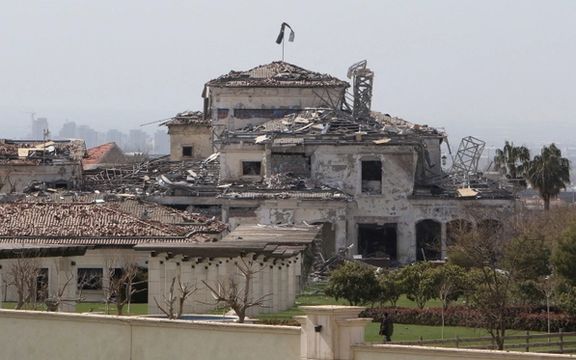
The purpose of an Iranian missile strike on Erbil in Iraq this month might have been meant to derail a gas pipeline project, an exclusive Reuters Report says.
A plan for Iraq's Kurdistan region to supply gas to Turkey and Europe - with Israeli help - is part of what angered Iran into striking the Kurdish capital Erbil, Iraqi and Turkish officials say.
The March 13 attack on Erbil came as a shock to officials throughout the region for its ferocity and was a rare publicly declared assault by Iran's Islamic Revolutionary Guards Corps (IRGC).
Many were surprised that the attack took place amid nuclear talks with Iran and at a time when Tehran has been demanding that the United States lift sanctions imposed on the IRGC.
The IRGC said the strike hit Israeli "strategic centers" in Erbil and was retaliation for an Israeli air raid that killed two of its members in Syria. There were also hints that the attack was in retaliation for an Israeli drone attack in February that destroyed an IRGC drone base in Western Iran.
The choice of target, however, baffled many officials and analysts. Most of the 12 missiles hit near the villa of a Kurdish businessman involved in the autonomous Kurdistan region's energy sector.
Iraqi and Turkish officials who spoke to Reuters on condition of anonymity this week said they believe the attack was meant as a multi-pronged message to US allies in the region - but that a key trigger was a plan to pump Kurdish gas into Turkey and Europe, with Israel's involvement.
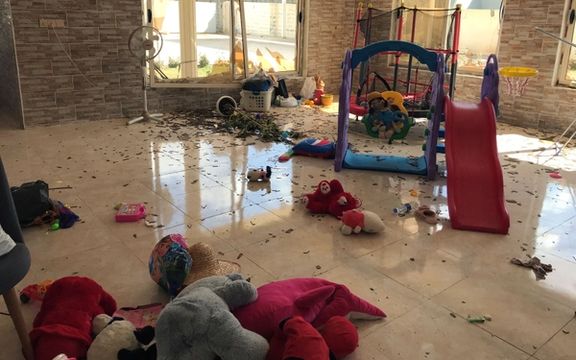
"There had been two recent meetings between Israeli and US energy officials and specialists at the villa to discuss shipping Kurdistan gas to Turkey via a new pipeline," an Iraqi security official said.
A senior Iranian security official told Reuters the attack was a "multi-purposed message to many people and groups. It's up to them how to interpret it. Whatever (Israel) is planning, from energy sector to agriculture, will not materialize."
Two Turkish officials confirmed that talks involving US and Israeli officials recently took place to discuss Iraq supplying Turkey and Europe with natural gas but did not say where they took place.
The Iraqi security official and a former US official with knowledge of the plans said the Kurdish businessman whose villa was hit by the Iranian missiles, Baz Karim Barzanji, was working to develop the gas export pipeline.
The disclosure puts Iran's attack on Erbil in the context of regional energy interests, rather than Israeli military attacks on the IRGC, as widely reported.
Israel's foreign ministry said it was not familiar with the matter. Barzanji did not immediately respond to a Reuters request seeking comment.
The office of Iraqi Kurdish President Nechirvan Barzani denied any meetings with US and Israeli officials to discuss a pipeline took place at Barzanji's villa. The Kurds deny there is any Israeli military or official presence in their territory.
TURKEY-ISRAEL RAPPROCHEMENT
The Iraqi, Turkish and Western sources spoke to Reuters mostly on condition of anonymity because they are not allowed to give statements to the media.
They said the move comes as a politically sensitive time for Iran and the region: the gas export plan could threaten Iran's place as a major supplier of gas to Iraq and Turkey while its economy is still reeling from international sanctions.
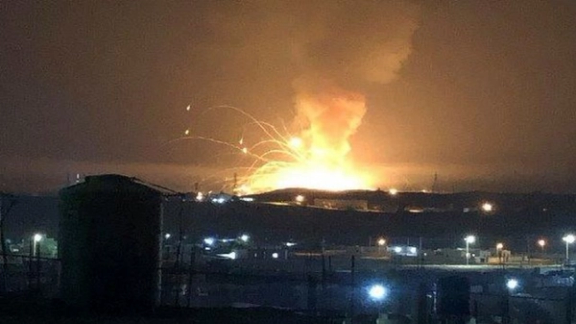
It also comes as Israel, Iran's biggest enemy in the region, and Turkey are strengthening ties and looking at further energy cooperation as sanctions on Russia over its invasion of Ukraine threaten severe shortages across Europe.
Iran is also a close ally of Russia and the disruption of a plan to supply gas to Europe could also harm Moscow’s prominent role as a major supplier to the continent.
Turkish President Tayyip Erdogan said last month that Turkey and Israel can work together to carry Israeli natural gas to Europe. Erdogan also met Barzani and said that Ankara wants to sign a natural gas supply deal with Iraq.
"The timing of the attack in Erbil is very interesting. It seems it was more directed at northern Iraq's energy exports and possible cooperation that would include Israel," one of the Turkish officials said.
"Some talks were held for northern Iraq natural gas exports, and we know that Iraq, the United States and Israel were involved in this process. Turkey supports this too," the official added.
The Iraqi security official said at least two meetings to discuss the issue, with US and Israeli energy specialists, had taken place at Barzanji's villa, which he said explained the choice of target for Iran's missile strike. No one was seriously hurt in the attack, but the villa was severely damaged.
An Iraqi government official and a Western diplomat in Iraq said that Barzanji was known to host foreign officials and businessmen at his home and that they included Israelis.
The Iraqi security official and the former US official said Barzanji's KAR Group company is working to expedite the gas export pipeline. The new pipeline would eventually connect to one that has already been completed on the Turkish side of the border, the former US official said.
KAR Group built and manages the Kurdish region's domestic pipeline, the Kurdistan presidency's chief of staff Fawzi Harir said. It also owns a third of Kurdistan's oil export pipeline under a lease agreement. The rest is owned by Russia's Rosneft.
Based on report by Reuters
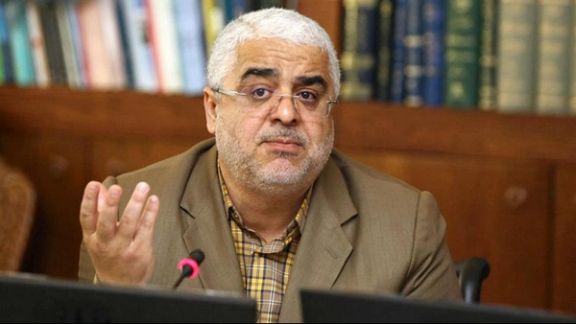
A hardliner member of Iran's parliament has harshly criticized President Ebrahim Raisi's inaction amid a serious economic crisis and hardship for many Iranians.
Without naming Supreme Leader Ali Khamenei Gholamali Jafarzadeh Imanabadi said those who "engineered" the June 2021 presidential election and brought a man to power who still needs to learn the basics of economics should be accountable for his failures.
Raisi, a cleric with just elementary school education, was Khamenei’s choice for president and all his serious rivals were barred from running in the June 2021 vote.
Raisi should know that he is the president of 85 million Iranians, Imanabadi, who supported Raisi last year, said, and that he does not represent only the 15-17 million people who voted for him despite his limited abilities.
Zayban Ghabishavi, the Iranian journalist who interviewed Imanabadi for Rouydad24 news website, wrote: "Raisi has been in office for more than seven months now, but nothing appears to have changed during this period. Criticism of Raisi and his economic teams still remain unanswered, and there is no hope in any improvement in the performance of the government."
She added that "the lack of executive experience on the part of Raisi and his cabinet indicates that the situation will get even worse." Ghabishavi quoted Imanabadi as having said: "None of Raisi's promises have been met,” and the few things he has done so far have never been the people's priority.
Accountable to people
According to Imanabadi, Raisi has not done anything other than wasting his time by blaming the Rouhani administration for all the shortcomings. The lawmaker added that throughout the past seven months Raisi's advisers misled him and the people.

"Raisi should know that he has to give a report to the people this coming summer about the progress he has made," Imanabadi said, while pointing out that the people's dire financial situation during the Iranian New Year (Noruz) holidays revealed the decline in their purchasing power. "He wanted to eliminate poverty, but the people have become poorer during the past seven months, and the situation is going to look much worse in the future."
Imanabadi particularly criticized the government for failing to pay millions of Iranian pensioners until the last hour before the holidays.
Meanwhile, he said Raisi had claimed that he has a 7,000-page plan to run the economy. "I wish he presented only seven pages of that plan to the public," he said. He added that Iran lawmakers expected Raisi to take action to replace the ministers of labor and economy and the chairman of the Planning and Budget Organization and not wait for the Majles to impeach them.
Did you come from Mars?
The lawmaker, who was once one of Raisi’s staunch supporters, said that he is certain at least 30 percent of those who voted for him have been disappointed. He added that the government's slogans are based on illusions rather than realities. "You have not come from Mars. You have been holding official positions during the past 30 years, and still, you fail to realize that you are responsible for the current situation."
He said Raisi does not allow reporters to accompany him during his provincial tours because he fears they might record his blunders and let the public know about t. He added that government officials do not allow any criticism, and target anyone who dares to criticize them.
Meanwhile, the lawmaker called on Raisi to explain how he can claim to manage the economy independent of the nuclear negotiations and lifting of US sanctions. He also asked Raisi to explain Iran's over-reliance on Russia. But first and foremost, he has to change his economic team. He must realize that many mechanics, tailors, hairdressers, doctors and nurses are leaving this country" because of the poor performance of the government's economic team.
Earlier, many politicians, lawmakers and analysts, including Reformist activist Gholamali Rajaei had also called on Raisi to change the members of his economic team. Rajaei had called the Raisi administration "the most incapable cabinet since the 1979 Islamic revolution."
Meanwhile, Iranian economists such as Hossein Raghfar had warned that "national interests and the interests of 85 million Iranians are not on the Raisi administration's agenda."

Iran’s health minister has confirmed that the government has eliminated a major subsidy for medicines, a move some see as a death sentence for many people who cannot afford market prices.
Minister Bahram Einollahi said on Sunday that manufacturers will no longer receive cheap dollars from the government to import raw materials, meaning they should buy dollars at a fivefold higher rate on the exchange market.
The public relations manager prof the ministry said, however, that the change hasn’t been finalized yet and the supply of medicine with cheap dollars is still going on.
Social media users say such a decision would be “an obvious and deliberate act of mass murder!”
Earlier in March, Iran’s parliament decided to scrap an annual subsidy of up to $15 billion for essential food and medicines, despite warnings of more inflationand hardship, but there were speculations that the government would make an exception for medicine.
The idea to eliminate the subsidy emerged after hardliner president Ebrahim Raisi (Raeesi) assumed office in August and could count on backing from conservatives and ultra-conservatives in control of Iran’s parliament.
The subsidy was introduced in April 2018 when former US president Donald Trump signaled his intention to withdraw from the Obama-era nuclear agreement with Iran known as JCPOA, and Iran’s national currency began to nosedive. Prices for imported goods skyrocketed and the government decided to provide cheap dollars to importers of essential goods to keep prices low.
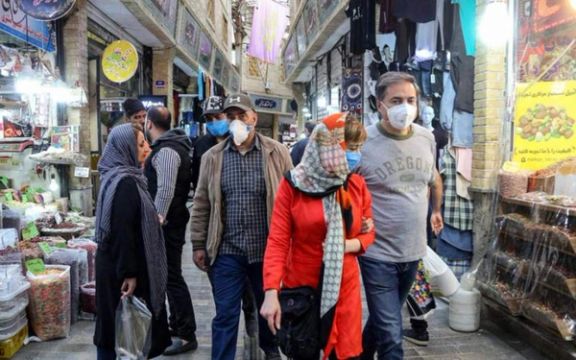
An Iranian lawmaker has warned that reserves of essential commodities are running out and it would be very hard to replenish them given current circumstances.
"Our strategic reserves are finishing, and we won't be able to replenish them," Jalal Mahmoudzadeh, a member of the parliament's Agriculture Committee, told Shafaq News Agency on Friday.
According to Mahmoudzadeh, the war in Ukraine, the government's decision to scrap cheap dollars for importing essential commodities, and mismanagement are the three factors that will affect the availability and prices of essential goods.
Mahmoudzadeh predicted that prices of commodities such as sugar, oil, and rice in the Iranian market will rise considerably in the coming months due to the elimination of subsidies.
Iran decided to end a costly subsidy for importing food and animal feed recently, raising fears of rising prices in the new year that started on March 21. According to a report by ISNA on March 19, out of about $19 billion worth of basic goods imported in the past 12 months nearly $15 billion was subsidized with cheap dollars provided to importers.
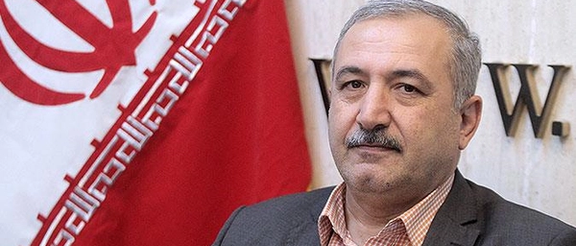
Animal feed, much of the grains imported from Russia and Ukraine with cheap dollars until now would also become scarce and prices of red and white meat will therefore rise considerably, he said. Importers might be jittery about making commitments given the unpredictable foreign currency rates in Iran and government price fixing.
Last week it was announced that Iran’s agriculture minister, Javad Sadatinejad, had signed an agreement during a recent visit to Russia to import 20 million tons of basic goods, including vegetable oil, wheat, barley and corn. The report said the deal is to address concerns about shortages of basic goods and livestock feed in the coming months but did not mention the monetary value of the deal.
Iran is under US sanctions, but the government of President Ebrahim Raisi insists that it has succeeded in blocking their effect on the economy and neutralized the sanctions to a great extent. "The biggest achievement of the government in Vienna [nuclear] talks has been greatly reducing the strategic value of sanctions for the other side through the strategy of neutralizing sanctions," the official news agency (IRNA) wrote Friday.
Recent news about higher oil exports coincides with the most critical phase of indirect nuclear talks that the Biden Administration started with Iran almost a year ago. If talks fail, sanctions will continue.
Reuters reported on February 10 that daily illicit shipments of crude oil had surpassed one million barrels a day in the previous two months. This was the highest since May 2019 when the Trump administration imposed full sanctions on Iran’s oil exports.
Between May 2019 and late 2020, Iran’s clandestine oil exports hovered around 200,000 bpd, or 10 percent of its sales before Donald Trump withdrew from the Iran nuclear agreement, JCPOA, and imposed sanctions. The exports increased in 2021, but it is not clear how much cash revenues Iran receives, given the illicit nature of the shipments primarily going to China.
Oil exports may have increased but the government coffers appear to be still empty. The value of rial remains near its all-time lows at 260,000 to the US dollar, while liquidity keeps rising as the government prints more money.
Just before the Iranian New Year earlier this week, for the first time in over four decades, the Islamic Republic's government failed to make the monthly payments of millions of pensioners. Payments had regularly been made even during eight years of war with Iraq (1980-1988) under difficult conditions.
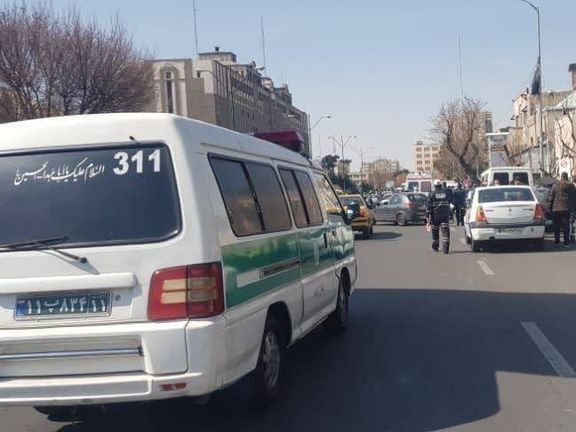
The deputy commander of Iran's police says the livelihood of their personnel is one of the main concerns of the Law Enforcement Force, amid high inflation.
Brigadier-General Qasem Rezaei told the ILNA news agency Friday that housing units and other facilities would be provided for officers to improve their living conditions. Rezaei also said that salaries paid to police were not in a par with the important services they provided.
Late in January, dozens of members of the armed forces and retirees protested in several Iranian cities over living and working conditions. Teachers, nurses, firefighters, prison guards, and employees of the judiciary have all held protest rallies or strikes to demand higher salaries.
Earlier in January, the spokesman for Iran's police said that while salaries for police officers had increased several times in the previous Iranian year (ending March 20, 2021), the government could not afford substantially higher salaries.
Akbar Shokat, head of the construction workers union, recently claimed prices had risen five to ten-fold since 2018, when the United States introduced ‘maximum pressure’ sanctions. The International Monetary Fund gives consumer price inflation of 34.6 percent in 2019, 36.4 percent in 2020, 39.3 percent in 2021 and projects 25.7 percent for 2022 – giving an overall increase to date of over 255 percent since 2018.
Iran Statistical Center and media, however, have reported higher inflation in 2021, especially for food items that increased more than 60 percent.